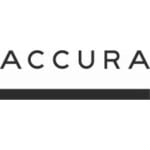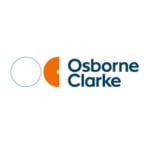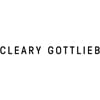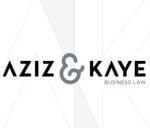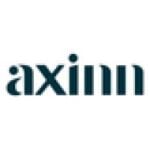-
What is the relevant legislative framework?
The Monopoly Regulation and Fair Trade Act (“MRFTA”) is the primary legislation that regulates cartels in Korea. The Enforcement Decree of the MRFTA, together with guidelines published by the Korea Fair Trade Commission (“KFTC”), detail or supplement the MRFTA provisions. The KFTC guidelines include:
- Guidelines on Examination of Cartels;
- Guidelines on Examination of Cartels in Bidding;
- Guidelines on Examination of Cartels Involving Administrative Guidance;
- Guidelines on Examination of Cartels Involving Information Exchange between Undertakings;
- Notice on the Operations of the Leniency Guidelines for Voluntary Disclosure of Cartels; and
- Guidelines for Filing Applications for the Approval of Cartels and Competition-Restrictive Practices.
There are also guidelines issued by the Prosecutors’ Office (“PO”) on 10 December 2020, Guidelines for the Reduction of Penalty in Cartel Cases and Investigation Procedures, through which a criminal leniency programme (in addition to a leniency programme available under the MRFTA) was formally implemented for cartel cases.
Even if a conduct falls under any of the anti-competitive arrangements outlined in the MRFTA, exemptions may be granted if the conduct serves specific purposes and approval is obtained from the KFTC through prior application filing. These purposes include:
- Industrial restructuring for recovery from economic recession;
- Research and technical development;
- Rationalization of transaction terms; and
- Improvement of competitiveness of small and medium enterprises (SMEs)
However, these exemptions have been granted in very few cases, and there is some debate about the need to broadly recognize these exemptions to protect SMEs.
Cartels are largely divided into nine categories under the MRFTA (Article 40): (i) price fixing, (ii) setting terms of transaction, (iii) production restriction, (iv) allocation of region, (v) restriction of specification, (vi) establishment of joint company, (vii) interfering with business, and (viii) bid rigging. In addition, information exchange has been added as a type of cartel with the amended MRFTA that came into effect in 2021. In the case of bid rigging, a both the Criminal Act and the Framework Act on the Construction Industry also regulate bid rigging in addition to the MRFTA. Article 315 of the Criminal Act prohibits any tampering with the fairness of auctions or tenders through fraudulent, coercive, or other deceptive methods. Similarly, Article 95 of the Framework Act on the Construction Industry penalizes individuals who collude with other bidders to submit prearranged bid prices, thereby unjustly benefiting or disrupting fair pricing mechanisms. These provisions encompass bid-rigging as a form of cartel behavior, warranting legal consequences. Consequently, in bid-rigging instances, a single act of cartel behavior may constitute multiple offenses under the MRFTA, the Criminal Act, and the Framework Act on the Construction Industry. Meanwhile, the KFTC created the Private Sector Bid Rigging Investigation Team in 2021 with the aim of regulating widespread bid rigging practices in the private sector, and since then, the number of bid rigging cases in the private sector has been increasing. According to the KFTC’s case statistics, in 2023 and 2024, there were 65 and 83 cartel cases that the KFTC found and sanctioned, respectively, and bid rigging cases accounted for 51 and 70 of them.
-
To establish an infringement, does there need to have been an effect on the market?
Yes, to establish an infringement under the MRFTA, it is necessary to demonstrate that the concerted behaviour among competitors unreasonably restrains competition within the relevant market. This requirement applies to both hard-core and soft-core cartels; however, according to the Guidelines on Examination of Cartels, detailed review varies depending on whether conduct is hard-core cartel or soft-core cartel. In instances of hard-core cartels, the burden of proof is eased and the KFTC may perform a basic evaluation of the market, including its structure and the competitive dynamics affected by the conduct, to presume its illegality without a detailed assessment of its competitive impact. Conversely, for soft-core cartels, with both anti-competitive and efficiency-enhancing effects might be present, a thorough examination of these effects is mandated to ascertain the conduct’s legality. In this context, the use of economic analysis has increased in recent cartel cases. The KFTC has also been working to strengthen its economic analysis capabilities since publishing a booklet on understanding and utilizing economic analysis in 2017, and in 2025, it appointed a current university professor as the head of the Economic Analysis Division for the first time.
Additionally, the Guidelines for Cartel Review indicates that if the cartel’s market share does not exceed 20%, it is generally presumed that their conduct has negligible or no anti-competitive effects and the KFTC will conclude its review (“safe harbour”).
-
Does the law apply to conduct that occurs outside the jurisdiction?
The MRFTA applies to conduct occurring outside Korea if it impacts the Korean market. Specifically, Article 3 of the MRFTA states that it covers extraterritorial conduct linked to the Korean market. The Korean Supreme Court has ruled that only conducts with a direct, significant, and foreseeable effect on the Korean market fall under the MRFTA’s jurisdiction. It also highlighted the principle of comity in competition law, cautioning against overly broad extraterritorial enforcement of the MRFTA to avoid unfair outcomes. Similarly, the KFTC upholds the principle of comity in its application of competition law.
-
Which authorities can investigate cartels?
The KFTC is the government agency that enforces the MRFTA. A final decision of the KFTC on whether there was a violation of the MRFTA – based on evidence and testimonies gathered during its investigation and deliberations – may be appealed at the Seoul High Court, which has exclusive jurisdiction over appeals against KFTC’s decision. A party that seeks to object to the Seoul High Court’s decision may file an appeal to the Supreme Court.
As for criminal prosecution, generally, the PO is given prosecution authority for cartel matters only when the KFTC refers the matter to the PO because the KFTC has the exclusive right to make criminal referrals in relation to MRFTA violations. Meanwhile, cartel matters not referred to the PO by the KFTC may still be reinvestigated and referred for criminal prosecution at the request of certain other government agencies below. The prosecutor general may request that the KFTC file a criminal referral with the PO if the conduct constitutes a serious violation of the MRFTA. For certain bid-rigging conduct that violates the Criminal Act or the Framework Act on the Construction Industry, the KFTC’s referral is not necessary for the PO to prosecute the case. The Chairperson of the Board of Audit and Inspection of Korea, the Minister of SMEs and Startups, and the Administrator of the Public Procurement Service may also request that the KFTC file a criminal referral for other reasons, such as far-reaching social effects, influence on the national finance, and the extent of the damage to small and medium enterprises. Upon receipt of a request for filing a criminal referral from the above-mentioned government authorities, the KFTC shall file a criminal referral with the Prosecutor General (“KFTC’s obligatory criminal referral”). In conclusion, even if a company may exempt from the KFTC’s criminal referral, the company should take notice that it can also be subject to criminal procedure if other government agencies request the KFTC to file a criminal referral.
-
How do authorities typically learn of the existence of a potential cartel and to what extent do they have discretion over the cases that they open?
The KFTC has the authority to identify potential cartels on its own initiative through independent data collection and market monitoring, and may launch investigations ex officio. In cases involving public sector bidding, the KFTC may also request the submission of relevant bidding materials from public institutions under Article 41 of the MRFTA.
In addition to ex officio investigations, the KFTC may also become aware of cartel activities through voluntary reports by participating undertakings, complaints from interested parties, or tips from third parties. Under Article 44 of the MRFTA, undertakings that voluntarily report their involvement in a cartel and meet certain conditions may be eligible for reductions or exemptions from remedial orders and/or administrative surcharges (i.e., leniency program). For third parties not involved in the cartel, a reward may be granted under Article 91 of the Enforcement Decree of the MRFTA if they are the first to report the conduct and provide evidence sufficient to substantiate the cartel activity (i.e., whistle blower). Considering that the reward can be up to KRW 3 billion, and that employees of businesses that violate the law may also be eligible for the reward, the KFTC announced that it will actively encourage such whistleblowing in 2024.
Whether to initiate a formal investigation based on suspicions identified ex officio is at the discretion of the KFTC. However, in the case of complaints, the KFTC must formally conduct a preliminary review, and then decide within 30 days (excluding the period for requests for any supplementary documentation) whether to proceed with a formal investigation. According to the KFTC’s most recent Statistical Yearbook, between 2021 and 2023, the KFTC initiated investigations into a total of 476 cartel cases, of which 224 were triggered ex officio and 252 were based on complaints.
-
What are the key steps in a cartel investigation?
The KFTC may conduct on-site investigations, seize documents, and interview employees. Key steps in the process include:
- On-site Investigations and Evidence Collection: The KFTC collects evidence through raids, document seizures, RFIs (requests for information) and interviews.
- Examiner’s Report: After reviewing the evidence, the KFTC issues an examiner’s report outlining the allegations and supporting evidence. Respondents have three to four weeks to submit a written response, with possible extensions for complex cases or overseas companies.
- Hearing (Deliberation): A hearing can be scheduled after several months from receiving the written response. KFTC commissioners then make a final decision.
- Decision: The final decision is documented in writing, typically issued within weeks to months after the hearing.
-
What are the key investigative powers that are available to the relevant authorities?
The KFTC possesses extensive powers to enforce the MRFTA, reliant on the cooperation of those under investigation. These powers are outlined below. Meanwhile, any refusal, obstruction or evasion of an investigation through verbal abuse or assault, or intentional obstruction or delaying the KFTC’s entry to the site can lead to imprisonment of up to three years and/or criminal fines of up to KRW 200 million. And any refusal, obstruction or evasion of an investigation through concealment, destruction, denial of access, or forgery or alteration of data during the investigation can lead to imprisonment of up to two years or criminal fines of up to KRW 150 million.
- RFI (Information Requests): The KFTC can demand the submission of documents or items necessary for investigation from businesses, executives, or employees. This includes both suspected and third parties, such as competitors and customers.
- Dawn Raids: The KFTC has the authority to inspect business premises for documents, electronic data, and other materials without prior notice, with the company’s consent. While these dawn raids do not require a court warrant, the KFTC has recently clarified the details and limits of its investigative rights through various efforts, such as by specifying alleged violations in its notice of investigation (alleged violations need not be specified in the case of cartels), establishing investigation standards for its compliance support department, and when extending its dawn raid period, stating reasons such extensions in its notice of extensions
- Interviews: The KFTC has the right to summon and hear from accused parties, witnesses, or other interested parties. Failure to comply without just cause can result in an administrative fine of up to KRW 100 million for entities or KRW 10 million for individuals. In practice, the KFTC may conduct interviews via video conferencing in exceptional cases—such as when it is necessary to question employees of foreign companies and in-person investigation is not feasible.
- Expert Witnesses: It may appoint expert witnesses to provide insights during investigations.
For the PO, its powers align with general criminal procedures, including arrests and search and seizure, contingent on obtaining court-issued warrants.
-
On what grounds can legal privilege be invoked to withhold the production of certain documents in the context of a request by the relevant authorities?
Korean law does not recognise the principle of attorney-client privilege. Therefore, the investigated company cannot refuse to provide materials requested by the KFTC solely on the basis that they are privileged information. Separately, if the materials requested by the KFTC contain information protected by the Personal Information Protection Act, such as employees’ registration numbers and addresses, the investigated company may submit the materials after redacting the parts containing such personal information. Furthermore, if the materials requested by the KFTC contain confidential information or trade secret, redactions of such information or non-disclosure vis-à-vis third parties can be requested.
-
What are the conditions for a granting of full immunity? What evidence does the applicant need to provide? Is a formal admission required?
The MRFTA’s leniency programme grants full immunity from remedial orders or administrative surcharges to the first applicant who provides crucial evidence of a cartel, with discretion for immunity to criminal charges also typically extended. To qualify for first-priority leniency, the applicant must:
- be the first participant to exclusively provide evidence necessary to prove the existence of a cartel;
- voluntarily submit the evidence before the KFTC comes into possession of any or enough information to substantiate the existence of a cartel;
- cooperate fully with the KFTC’s investigation by sharing all relevant facts and documents;
- cease cartel participation immediately upon applying for leniency; and
- not have coerced others into the cartel or been a repeat participant in cartels.
Disclosure of leniency applications to third parties without KFTC’s consent or providing false information during the investigation may result in revocation of leniency status. Also, if a leniency applicant’s statement during litigation appealing the KFTC’s disposition is different from that provided to the KFTC during the investigation process, reduction or exemption from remedial orders or administrative surcharges that the leniency applicant has received may be cancelled.
Leniency applications must generally be in writing and can be done so through an in-person visit to the KFTC, email, or fax. While oral submissions may sometimes be permitted, they cannot be made over the phone.
The PO offers a leniency programme known as the Criminal Leniency Programme, introduced on 10 December 2020. This programme largely mirrors the KFTC Leniency Programme but is tailored to target hardcore cartels under the MRFTA (e.g., price fixing, output restrictions, market allocation), and certain bid-rigging behaviors. The Criminal Leniency Programme is open to individuals and businesses. The first-priority applicant under the Criminal Leniency Programme is eligible for exemption from indictment. And the first-priority applicant is protected from search and seizure, arrest, detention, and other compulsory investigations, except in exceptional circumstances.
-
What level of leniency, if any, is available to subsequent applicants and what are the eligibility conditions?
The second applicant for leniency may qualify for a 50% reduction in the administrative surcharge and potential exemptions from remedial orders and criminal referral to the PO. To attain second-priority leniency status, the applicant must fulfill the same conditions outlined for first-leniency status, with the exception of being the second to provide evidence. If the cartel involves only two participants, second-priority leniency status is not available. To qualify, the applicant must cooperate fully, cease participation in the cartel, refrain from coercion or illegal conduct, and be the second to exclusively provide evidence within two years of the first applicant’s filing. Meanwhile, the second-priority applicant under the Criminal Leniency Programme is eligible for a lighter sentencing recommendation by the prosecutor.
-
Are markers available and, if so, in what circumstances?
Markers (i.e., simplified applications) are available. An applicant that submits its identity and a brief overview of the cartel will be deemed to have filed its application on that date. The applicant is initially provided a 15-day period to supplement its application and an extra 60 days may be provided if a valid reason for extension is presented. An extension of more than 60 days may be granted if the KFTC finds that additional time would be needed to collect relevant evidence and obtain statements (e.g., international cartel cases). Therefore, ensuring that the most important content is submitted in the initial 15-day period is crucial. A full application is expected to be submitted by the end of the period for supplementation.
However, there are certain limits regarding supplementation, both in terms of timing and content. For instance, if the leniency application needs to include a new entity, like an affiliate of the original applicant, this addition must be made within a 75-day window.
Similarly, the Criminal Leniency Programme offers markers. However, for marker supplementation, a 30-day period is provided, which may be extended up to 60 days if deemed necessary by the PO, especially in cases involving international cartels.
-
What is required of immunity/leniency applicants in terms of ongoing cooperation with the relevant authorities?
The KFTC’s Leniency Programme requires applicants to cooperate continuously until the investigation concludes for priority status. The KFTC assesses cooperation based on:
- whether the applicant provided related information to the best of their knowledge without delay;
- whether all related materials in possession of the applicant or that the applicant could obtain were submitted promptly;
- whether the applicant promptly responded to the KFTC’s requests for information and cooperated with its requests;
- whether the applicant used its best efforts to have its employees cooperate with the KFTC’s investigation in good faith; and
- whether there was any evidence that was destroyed, damaged, forged or concealed by the applicant.
A leniency applicant that discloses the fact that it applied for leniency to third parties, including participants of the cartel, before the conclusion of the KFTC’s deliberation and without the KFTC’s approval, will be deemed to have failed to meet the good-faith cooperation requirement. Also, if a leniency applicant’s statement during litigation appealing the KFTC’s decision is different from that provided to the KFTC during the investigation process, or the leniency applicant provides false information, its leniency status will be revoked.
The standards under the Criminal Leniency Programme are largely identical.
-
Does the grant of immunity/leniency extend to immunity from criminal prosecution (if any) for current/former employees and directors?
The KFTC’s leniency programme is limited to “undertakings”, with no provision for current or former employees and directors to apply for leniency. However, when an undertaking applies for leniency and meets the requirements, in practice, the KFTC does not refer its current or former employees and directors to the PO for criminal prosecution. Yet, it is worth noting that violation of bid-rigging under the Criminal Act or the Framework Act on the Construction Industry, may still result in prosecution, regardless of leniency granted by the KFTC.
In contrast, the PO’s leniency programme is open to both “undertakings” and “individuals”. When an undertaking applies for leniency, it must list current and former executive officers and employees who seek immunity from prosecution. Notably, first-priority leniency granted by the PO covers violations of the Criminal Act, the Framework Act on the Construction Industry, or the MRFTA, providing comprehensive immunity from prosecution for eligible individuals.
-
Is there an ‘amnesty plus’ programme available in respect of evidence provided to prove additional infringements?
The KFTC has an amnesty plus programme. If a company is involved in the first cartel and applies for leniency as the first applicant for the second cartel, and if this company submits a leniency application for the second cartel after the KFTC begins investigating the first cartel but before the KFTC holds a hearing for it, the company may qualify for further leniency regarding the cartel for which it wasn’t the initial leniency applicant. The size of both cartels is considered in determining the degree of additional leniency. Here, ‘size’ refers to the total turnover of all participants involved in the cartels. If the second cartel is smaller than, or of the same size as, the first cartel, a reduction of surcharge by up to 20 percent may be granted. If the size of the second cartel is at least four times greater than that of the first cartel, the entire amount of the surcharge is waived.
-
Does the investigating authority have the ability to enter into a settlement agreement or plea bargain and, if so, what is the process for doing so?
There is no plea bargaining or settlement system for a cartel case in Korea. In addition, consent decrees do not apply to cartel cases.
-
What are the key pros and cons for a party that is considering entering into settlement?
N/A (There are no settlement procedures regarding cartel cases)
-
What is the nature and extent of any cooperation with other investigating authorities, including from other jurisdictions?
(1) Inter-agency cooperation
When deemed necessary for enforcement of the MRFTA, the KFTC may ask the head of the relevant administrative agency or other institution or organization to conduct the necessary investigation or to share necessary information. In fact, with regard to bid-rigging cartel monitoring, the KFTC is strengthening cooperation with major organizations by holding meetings with the government, municipalities, public enterprises, quasi-governmental organizations, public institutions, local public enterprises and related organizations that provide bid-related information to the KFTC’s BRIAS (Bid Rigging Indicator Analysis System).
(2) Co-operation with foreign enforcement agencies
The KFTC actively collaborates with foreign enforcement agencies to investigate international cartels. This cooperation involves various channels and agreements with jurisdictions such as the EU, Brazil, Russia, China, Japan, and the US. Additionally, Korea is also an active member of the Organization of Economic Co-operation and Development’s Competition Committee and the International Competition Network (ICN), and has attended the East Asia Top-level Officials’ Meeting on Competition Policy every year since 2008.
Investigations of international cartels by the competition authorities of the EU and the US will likely lead to an investigation in Korea. The KFTC keeps a close watch on foreign competition authorities and how cases are penalized overseas. In some cases, the KFTC shares information on suspected violations and investigation progress with the DG Comp of the EU, US FTC or the US DOJ. It may also conduct dawn raids simultaneously with other competition authorities worldwide, if required, and jointly organize seminars and conferences. However, even during such cross-border collaborations, competition authorities typically do not directly exchange evidence acquired from the subjects of the investigation. For reference, the KFTC’s International Cooperation Division and the International Cartel Investigation Division are responsible for cross-border collaborations.
-
What are the potential civil and criminal sanctions if cartel activity is established? How often are civil sanctions and/ or criminal penalties imposed in practice following a finding of an infringement?
(1) Criminal sanctions
The MRFTA provides that a person who engaged in cartel activity may be subject to a term of imprisonment of up to three years or a penalty of up to KRW 200 million, or both. Companies that engaged in cartel activity may be subject to a penalty of up to KRW 200 million. If the company is a corporation, criminal penalties may also be imposed on the representatives of such corporation as well as the individuals concerned.
A person who engages in bid-rigging prohibited under the Criminal Act may be punished by a term of imprisonment of up to two years or a penalty of up to KRW 7 million. A person who engages in bid-rigging prohibited under the Framework Act on the Construction Industry may be punished by a term of imprisonment of up to five years, or by a penalty of up to KRW 200 million. The sentences imposed by the court vary depending on the details of the case. While courts tended to impose criminal punishment only on corporations that participated in illegal cartels in the past, recently there has been an increase in the number of cases where the employees or executives directly involved in the cartel were subject to criminal punishment.
According to the KFTC’s most recent Statistical Yearbook, out of 496 cartel cases concluded between 2021 and 2023, the KFTC referred 27 cases for criminal prosecution in addition to imposing remedial orders or administrative surcharges.
(2) Administrative sanctions
Undertakings that participated in cartel activity may be subject to sanctions such as remedial orders and/or administrative surcharges. In most cases, the KFTC imposes both a remedial order and a surcharge. Administrative surcharges may be up to 20 percent of the relevant revenue and, if no revenue has been generated, a surcharge not exceeding KRW 4 billion. However, for conduct that ended before 30 December 2021 (for which the pre-amendment version of the MRFTA would apply), a surcharge not exceeding 10 percent of the relevant revenue and, if no revenue has been generated, a surcharge not exceeding KRW 2 billion may be imposed.
According to the KFTC’s most recent Statistical Yearbook, out of 496 cartel cases concluded between 2021 and 2023, the KFTC imposed remedial orders or administrative surcharges in 161 cases.
-
What factors are taken into account when the fine is set? Does the existence of an effective corporate compliance strategy impact the determination of the fine? In practice, what is the maximum level of fines that has been imposed in the case of recent domestic and international cartels?
When setting an administrative surcharge, the KFTC considers various factors including the details and severity of the violation, the duration and frequency of the violation, the profits gained from it, whether collusion was carried out, cooperation with investigations, voluntary correction of the issue, the defendant’s ability to pay, market and economic conditions, and the impact of the violation on the market.
Meanwhile, in June 2024, the MRFTA was amended to provide a legal basis for certain incentives for the introduction of compliance programmes. Under its Guidelines on Imposition of Administrative Surcharges, the KFTC operates a system that allows undertakings to receive reductions in administrative surcharges if they maintain a compliance programme that meets a certain grade (up to 20% reduction). However, this reduction does not apply to cartel cases.
(1) International cartel case
In September 2018, nine Japanese capacitor manufacturers and sellers faced administrative surcharges totaling KRW 36 billion (approximately USD 26.6 million) from the KFTC as well as criminal referrals for colluding to hike and sustain product prices over a 14-year period from 2000. The KFTC uncovered the collective price inflation of aluminum and tantalum capacitors supplied globally, including to Korea, from July 2000 to January 2014. These companies strategized at CEO and manager levels to avoid international price competition, sharing detailed information and tactics to execute planned price hikes and uphold minimum prices among companies serving the same customers. The KFTC found that this collusion negatively impacted the supply prices of capacitors exported to Korea, totaling approximately KRW 736.6 billion (approximately USD 545.2 million) during the collusion period.
(2) Domestic cartel case
In March 2025, the KFTC announced its decision to impose administrative surcharges totaling KRW 114 billion (provisional) on South Korea’s three major mobile carriers. The KFTC alleged that, in November 2015, the carriers reached an agreement to prevent any imbalance in the net number of subscribers gained or lost through number portability across the three companies. According to the KFTC, the carriers implemented this agreement by adjusting their conduct whenever such imbalances occurred, thereby ensuring that no single carrier disproportionately benefited or lost subscribers. The KFTC concluded that this cartel restrained competition in the mobile telecommunications market by limiting competitive efforts to acquire subscribers following the agreement.
-
Are parent companies presumed to be jointly and severally liable with an infringing subsidiary?
No, there is no system in place that automatically holds parent companies accountable for administrative, civil, or criminal charges stemming from their subsidiaries’ cartel activities. This differs from Europe, where, if an undertaking in an economic entity is proven to have committed an Article 101(1) TFEU infringement, the undertakings in that economic entity are treated as having committed an Article 101(1) TFEU infringement, and the undertakings comprising the economic entity at the time of the infringement are jointly and severally liable for the infringement.
-
Are private actions and/or class actions available for infringement of the cartel rules?
A person who suffers damage from illegal cartel conduct may file a lawsuit to claim damages against those who engaged in such practice.
The Korean legal system does not allow class actions in antitrust litigation. However, victims can jointly file a private lawsuit for antitrust damages. The outcome of the damages lawsuit will only be legally binding on the plaintiffs, although courts will take into account the outcome of a previous lawsuit based on the same facts in subsequent damages lawsuits filed by other victims of the same conduct.
-
What type of damages can be recovered by claimants and how are they quantified?
Previously, the compensation for damages was limited to the actual damages suffered by the claimant. However, a punitive damage provision was newly introduced through the recent amendment to the MRFTA, which allows treble damages for damages caused by cartel conduct committed on or after March 19, 2019. Accordingly, a cartel participant may be held liable for damages not exceeding three times the actual damages to the injured party.
In determining damages resulting from cartel behavior, the court evaluates it as the disparity between the price set by the cartel and the but-for price that would have been established in the absence of such collusion, known as the “hypothetical competitive price.” This hypothetical price is calculated by excluding only the price increase attributed to the cartel while keeping other market pricing factors intact. As this price is theoretical and does not exist in reality, estimating it requires the use of the most objective and logical method, such as comparing prices before and after the cartel (the before and after method), comparing cartel prices with those in a standard market (the yardstick method), or employing other econometric methods. Factors such as the type of cartel behavior, market conditions, and available data influence the choice of method. In practice, when lawsuits are filed for damages resulting from cartel activities, experts often utilize econometric analysis to calculate the damages. Due to the procedures related to such econometric analysis, these damages lawsuits tend to continue for a significant period of time.
-
On what grounds can a decision of the relevant authority be appealed?
If the alleged violator believes that the KFTC’s decision contains a factual or legal error, they have the option to object to the KFTC and/or file an administrative lawsuit with the Seoul High Court. The plaintiff may seek cancellation of the KFTC’s decision by challenging its factual or legal grounds, or may instead acknowledge the illegality of the conduct found by the KFTC while disputing only the calculation of the administrative surcharge and requesting its cancellation. To further appeal to the Supreme Court regarding the Seoul High Court’s judgment, the accused party must demonstrate and substantiate a legal error, which involves proving any violation of constitutional provisions, laws, orders, or regulations that influenced the Seoul High Court’s ruling. An alternative method of appealing the KFTC’s decision is submitting an objection to the KFTC. Objections to the KFTC are extremely rarely upheld, except for simple and obvious errors such as numerical errors.
-
What is the process for filing an appeal?
(1) Administrative Sanctions
If the KFTC issues a remedial order or administrative surcharge due to cartel behavior, within 30 days of receiving the KFTC’s decision, the affected party can either (i) file an objection with the KFTC or (ii) initiate an administrative lawsuit with the Seoul High Court. The party has the discretion to choose between these two options but can only pursue one of them. After submitting an objection to the KFTC, if a decision is made, the affected party can file a lawsuit with the Seoul High Court and such a lawsuit must be filed within 30 days of the date the decision is rendered.
(2) Criminal Sanctions
If the PO files a criminal charge for the violation of the MRFTA, the proceedings follow the generally standard criminal procedures in Korea. The accused undergoes three stages of trials (district court, high court, and Supreme Court) after indictment by the PO. If the accused disagrees with the court’s ruling, they can appeal based on factual or legal errors.
-
What are some recent notable cartel cases (limited to one or two key examples, with a very short summary of the facts, decision and sanctions/level of fine)?
As mentioned above, the amendment of the MRFTA in 2020 provided the basis for regulating unlawful collusive behaviour in the form of information exchange, and the KFTC has recently been working to regulate such behaviour. As explained below, there are several large cartel cases currently pending, especially in the financial sector. It will be noteworthy to observe the KFTC’s final determination and how the courts, including the Seoul High Court, will adjudicate upon that decision.
In addition, there has been a recent increase in cartel cases involving the implementation of policies or the involvement of regulatory authorities other than the KFTC. While court rulings may vary slightly depending on the specifics of each case, many proceedings remain ongoing, making it important to continue monitoring developments in this area.
Lastly, due to the unexpected presidential election in June 2025, a new administration will take office in Korea. Depending on the policy priorities of the new government, there is potential for intensified cartel investigations in certain sectors. Accordingly, close attention should also be paid to the new administration’s regulatory direction.
(1) Recent notable cartel cases
(i) Commercial Banks’ case
In 2023, the KFTC launched an investigation into Korea’s four major banks for allegedly sharing their respective Loan-to-Value (LTV) ratio data—used in calculating real estate-backed loans based on region and property type. A hearing on the case was held in November 2024, but the KFTC was unable to reach a conclusion and instructed the examiner to conduct a further investigation.
This case marks the first application of the new provision on information exchange cartels introduced in the 2021 amendment to the MRFTA, and is expected to have a significant impact on how such provisions are interpreted and enforced going forward.
The KFTC had previously investigated major Korean banks in 2012 for alleged collusion in setting Certificate of Deposit (CD) interest rates, but in 2016 ultimately concluded that the allegations could not be substantiated.
(ii) Furniture manufacturers’ case
Between 2024 and 2025, the KFTC imposed sanctions on furniture manufacturers on three separate occasions for engaging in bid rigging related to interior construction projects for apartment complexes. The KFTC found that these cartels contributed to the rising pre-sale prices of apartments, which are the primary form of housing for many Korean citizens.
In April 2024, the KFTC imposed administrative surcharges totaling KRW 93.1 billion on 31 furniture manufacturers for colluding—between 2012 and 2022—on bids submitted to construction companies for built-in furniture in new apartments and studio units. Additionally, 8 of those companies and 12 current and former executives and employees were referred for criminal prosecution. In February 2025, the KFTC imposed an additional KRW 5.2 billion in administrative surcharges on 13 furniture manufacturers for a separate bid-rigging scheme involving built-in furniture from 2014 to 2022.
In October 2024, the KFTC sanctioned 9 bathroom manufacturers with KRW 6.7 billion in administrative surcharges for colluding on bids submitted to construction companies for apartment bathroom construction projects between 2015 and 2022.
Most recently, in February 2025, the KFTC imposed KRW 18.3 billion in administrative surcharges on 20 furniture companies for bid rigging involving system furniture for new apartment developments between 2012 and 2022. Four of these companies were also referred for criminal prosecution.
-
What are the key recent trends (e.g. in terms of fines, sectors under investigation, any novel areas of investigation, applications for leniency, approach to settlement, number of appeals, impact of hybrid working in enforcement practice – e.g. dawn raids of domestic premises, ‘hybrid’ in-person/virtual dawn raids, access to personal devices, etc.)??
The KFTC has recently intensified its enforcement efforts against new forms of collusion that go beyond traditional price or quantity-fixing cartels. In 2023, the Commission imposed administrative surcharges on several German diesel vehicle manufacturers, alleging that they colluded in reducing the dosing amount of urea solution through software while jointly developing emissions reduction technology. This marked the first case in which the KFTC treated conduct related to R&D as cartel behaviour and recognized environmental performance as a factor of competition.
The KFTC has also signalled a strong commitment to regulating information exchange cartels. Under the previous version of the MRFTA, establishing a cartel required proof of an agreement on key competitive factors such as price or output, with information exchange between companies serving only as circumstantial evidence to support or infer such agreements. However, the Korean Supreme Court held that the mere act of exchanging information was not, in itself, sufficient to prove a violation of the MRFTA.
To address this, the KFTC amended the MRFTA in 2021 to explicitly state that an agreement to exchange competitively sensitive information can constitute a cartel. The Commission applied this new provision for the first time in the ongoing case involving information sharing among Korea’s four major banks. Simultaneously, the KFTC is undertaking a commissioned study aimed at enhancing economic analysis in information exchange cases, with the goal of strengthening future enforcement.
The KFTC is also actively preparing to address collusion involving artificial intelligence (AI). In May 2024, it co-hosted a joint conference with the OECD focused on generative AI and competition policy. The event addressed emerging competitive concerns stemming from the development of generative AI technologies, including algorithmic collusion, and explored future directions for competition enforcement in the age of AI.
Meanwhile, it is noteworthy that courts have recently overturned several of the KFTC’s cartel enforcement decisions, ruling that certain types of collusion may be permitted as exceptions to free competition.
In 2022, the KFTC fined 22 global container shipping companies for colluding on freight rates via various communication channels. The companies appealed to the Seoul High Court, citing the Marine Transportation Act as permitting exceptions for such agreements. In February 2024, the Seoul High Court ruled in favor of the shipping companies, overturning the KFTC’s decision. The Seoul High Court stated that the MRFTA does not apply when a law acknowledges exceptions to free competition and specifies the regulatory authority that has jurisdiction over a certain conduct and the method of its enforcement. The Seoul High Court found that the Marine Transportation Act fell under such a law, and thus, the MRFTA did not apply. The KFTC filed an appeal with the Supreme Court, and on April 24, 2025, the Supreme Court reversed and remanded the Seoul High Court’s decision. The Supreme Court found that the Marine Transportation Act could not be interpreted that the Act exclusively applies to collusion on freight rates based on the language of the Act alone. In particular, the Supreme Court found no indication that, in the course of enacting or amending the MRFTA and the Marine Transportation Act, the necessity or reasonableness was sufficiently considered for exempting the collusion on freight rates by container shipping companies from the application of the MRFTA.
In another case, the KFTC imposed administrative surcharges on duck meat producers in June 2022, for allegedly colluding to reduce production through their trade association. However, the Seoul High Court overturned the KFTC’s decision. Citing the Constitution of the Republic of Korea, the court held that farmers forming and operating voluntary organizations may be permitted as an exception to free market competition. It recognized the producers’ association as a constitutionally protected entity and found that their conduct did not constitute an unreasonable restraint of trade or have anticompetitive effects.
-
What are the key expected developments over the next 12 months (e.g. imminent statutory changes, procedural changes, upcoming decisions, etc.)?
In its January 2025 work plan, the KFTC announced that it will intensively examine potential cartels this year in key sectors such as health and safety, consumer goods, housing, construction and intermediate goods, and public procurement. The Commission also stated that it would conduct in-depth analyses and develop enforcement strategies to address emerging forms of collusion, including AI-driven collusion, information exchange cartels, and green cartels.
As part of these efforts, in March 2025, the KFTC issued an examiner’s report concerning an alleged information exchange cartel involving Korean securities firms and banks in the public procurement sector. The case relates to suspected collusion in the bidding process for government bonds, where the companies are believed to have shared bid-related information. In addition, the KFTC is expected to resume deliberations—possibly within the first half of this year—on the separate information exchange case involving Korea’s four major banks.
South Korea: Cartels
This country-specific Q&A provides an overview of Cartels laws and regulations applicable in South Korea.
-
What is the relevant legislative framework?
-
To establish an infringement, does there need to have been an effect on the market?
-
Does the law apply to conduct that occurs outside the jurisdiction?
-
Which authorities can investigate cartels?
-
How do authorities typically learn of the existence of a potential cartel and to what extent do they have discretion over the cases that they open?
-
What are the key steps in a cartel investigation?
-
What are the key investigative powers that are available to the relevant authorities?
-
On what grounds can legal privilege be invoked to withhold the production of certain documents in the context of a request by the relevant authorities?
-
What are the conditions for a granting of full immunity? What evidence does the applicant need to provide? Is a formal admission required?
-
What level of leniency, if any, is available to subsequent applicants and what are the eligibility conditions?
-
Are markers available and, if so, in what circumstances?
-
What is required of immunity/leniency applicants in terms of ongoing cooperation with the relevant authorities?
-
Does the grant of immunity/leniency extend to immunity from criminal prosecution (if any) for current/former employees and directors?
-
Is there an ‘amnesty plus’ programme available in respect of evidence provided to prove additional infringements?
-
Does the investigating authority have the ability to enter into a settlement agreement or plea bargain and, if so, what is the process for doing so?
-
What are the key pros and cons for a party that is considering entering into settlement?
-
What is the nature and extent of any cooperation with other investigating authorities, including from other jurisdictions?
-
What are the potential civil and criminal sanctions if cartel activity is established? How often are civil sanctions and/ or criminal penalties imposed in practice following a finding of an infringement?
-
What factors are taken into account when the fine is set? Does the existence of an effective corporate compliance strategy impact the determination of the fine? In practice, what is the maximum level of fines that has been imposed in the case of recent domestic and international cartels?
-
Are parent companies presumed to be jointly and severally liable with an infringing subsidiary?
-
Are private actions and/or class actions available for infringement of the cartel rules?
-
What type of damages can be recovered by claimants and how are they quantified?
-
On what grounds can a decision of the relevant authority be appealed?
-
What is the process for filing an appeal?
-
What are some recent notable cartel cases (limited to one or two key examples, with a very short summary of the facts, decision and sanctions/level of fine)?
-
What are the key recent trends (e.g. in terms of fines, sectors under investigation, any novel areas of investigation, applications for leniency, approach to settlement, number of appeals, impact of hybrid working in enforcement practice – e.g. dawn raids of domestic premises, ‘hybrid’ in-person/virtual dawn raids, access to personal devices, etc.)??
-
What are the key expected developments over the next 12 months (e.g. imminent statutory changes, procedural changes, upcoming decisions, etc.)?



